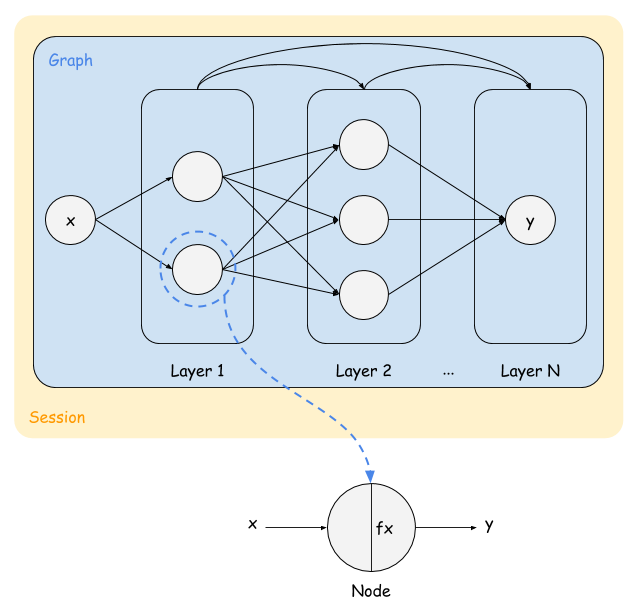whale.js v0.1.0
whale.js
Introduction
whale.js is a data process framework designed for simplicifing code writing. Especially, when we write data-oriented process logics, different data sources correspond to different logics. Now whale.js is the choice.
Architecture

Template
whale.js provides template mechanism. Every data process logic is written as whale.js template file in template/ folder. The core elements of whale.js template are:
- graph (
template/graph) - node (
template/node) - fx (
template/fx)
Graph describes how the data process flows work, which is composed by nodes. In consideration of node reuse, we can define common functions called fx.
Instance
Whale instance is created by loading template folder and simply calling use api.
const Whale = require('whale.js');
var whale = (new Whale('./template')).use('calculator');Session
Then call run api to run the whale. All intermediate variables store in whale whale.session.
whale.run(input_object, function(err) {
console.log('input_object:', whale.session.x);
console.log('output_object:', whale.session.y);
console.log('dump all:', whale.session);
});Data sharing
There are global predefined functions for cross-node accessing.
- Current node session setter/getter:
node.$setLocalsor$ - Cross node session getter:
node.$getGlobalsor$$
Example 1: calculator
// template/fx/calculator.js
module.exports = function(node, callback) {
var js = 'var v = ' + node.x.v1 + node.x.op + node.x.v2;
eval(js);
callback(null, v);
};// template/graph/calculator.js
module.exports = [
[
{
fx: 'calculator',
x: `{
v1: $$('x.value'),
v2: 3,
op: '*',
}`,
},
],
];Example 2: parallel
// template/graph/parallel.js
module.exports = [
[
{
id: 'a',
fx: 'request',
x: `{
url: $$('x.urls')[0],
}`,
y: `JSON.parse($('fx')).args.test`,
},
{
id: 'b',
fx: 'request',
x: `{
url: $$('x.urls')[1],
}`,
y: `JSON.parse($('fx')).args.test`,
},
],
[
{
id: 'c',
y: `$$('a.y') + $$('b.y')`,
},
],
];More examples
Step 1: git clone https://github.com/zhangxiaoyang/whale.js
Step 2: cd whale.js/ && npm install
Step 3: npm run test
7 years ago